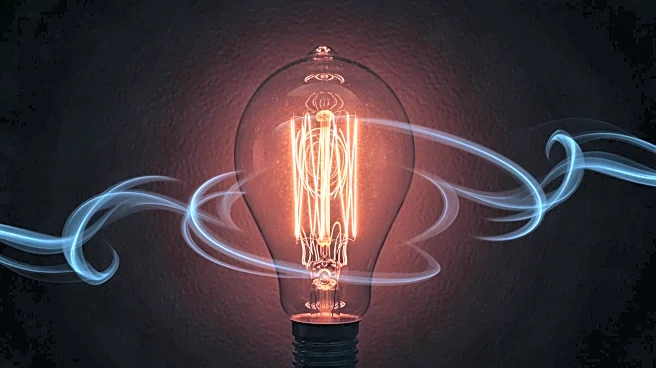What's Happening?
Nuclear Waste Services (NWS), a state-owned entity responsible for managing the UK's radioactive waste, has commenced early market engagement for a £360 million project aimed at capping and extending the Low
Level Waste Repository (LLWR) in Cumbria. This initiative, operated on behalf of the Nuclear Decommissioning Authority, involves installing a permanent engineered cap over disused trenches and Vault 8 at the LLWR site near Drigg. The capping process, which uses materials like clay, concrete, and geomembranes, is designed to isolate radioactive waste from the environment by preventing water infiltration and containing gas emissions. Additionally, the project includes extending Vault 9 to increase disposal capacity and constructing weatherproof warehousing for high-activity containers. A new management system will also be implemented to handle contaminated liquid, ensuring environmental protection.
Why It's Important?
This project is significant as it addresses the critical need for safe and effective management of radioactive waste, a pressing environmental and public health concern. By isolating waste and preventing contamination, the initiative aims to mitigate potential environmental hazards associated with radioactive materials. The extension of disposal capacity and the construction of new facilities are crucial for accommodating future waste, ensuring long-term sustainability. This project also represents a substantial investment in infrastructure, potentially creating jobs and stimulating economic activity in the region. The successful implementation of this scheme could serve as a model for similar projects globally, highlighting the importance of innovative solutions in waste management.
What's Next?
The project is set to be delivered through a framework agreement, with operations scheduled from October 2027 to December 2037. A virtual supplier engagement event is planned for November 5, with interested suppliers required to register by November 3. This engagement is expected to attract various stakeholders, including construction firms and environmental experts, who will play a role in the project's execution. The outcomes of these engagements will likely influence the project's timeline and implementation strategies, as well as the selection of technologies and materials used in the capping process.
Beyond the Headlines
The initiative underscores the ethical responsibility of managing hazardous waste to protect current and future generations. It also raises questions about the long-term sustainability of nuclear energy and the need for comprehensive policies addressing waste management. The project's success could influence public perception of nuclear energy, potentially affecting policy decisions and investment in the sector. Furthermore, it highlights the importance of international collaboration in sharing best practices and technologies for waste management.











